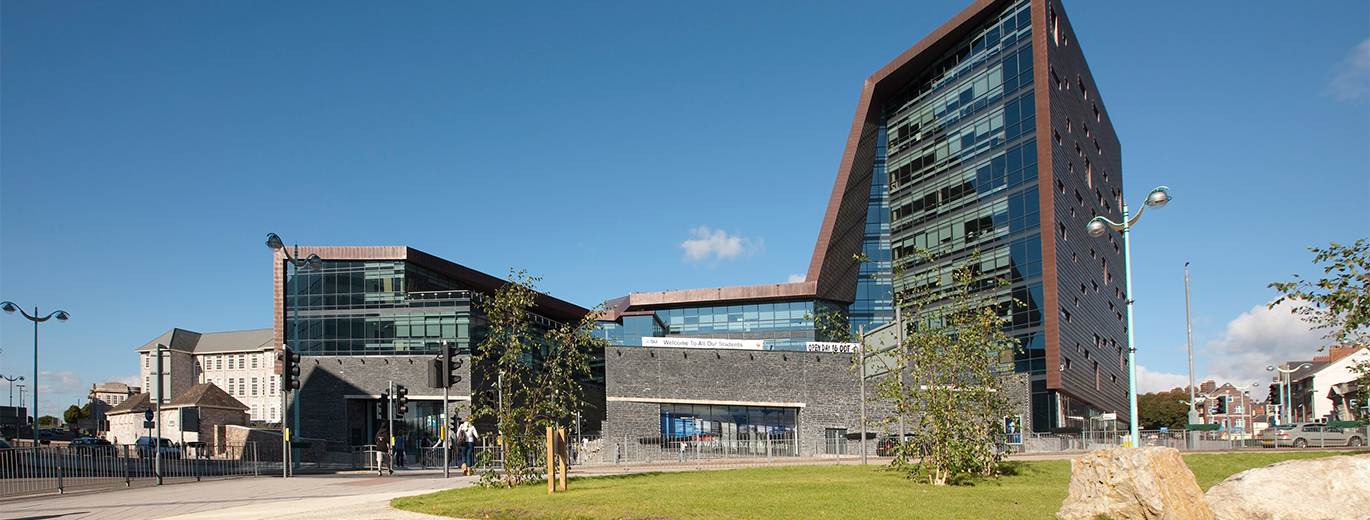
Marshalls and University of Plymouth collaborate on new range of sustainability courses
Marshalls and the University of Plymouth have collaborated on a range of sustainability courses, including Marshalls brand new Climate Change e-learning course, which makes the University of Plymouth the first higher education institution to include it into their catalogue.
Marshall E-Learning and the University of Plymouth have collaborated on a range of sustainability courses, including Marshalls brand new Climate Change e-learning course, which makes the University of Plymouth the first higher education institution to include it into their catalogue. Rubin Popova, Marketing lead at Marshalls, asked Matthew Tosdevin, Environment Officer at the University of Plymouth a few questions about the new course and what actions Plymouth take in relation to sustainability and the environment.
Hi Mathhew, so what is your role as an Environment Officer at Plymouth and how did you get into the role?
My role as an Environment Officer at the University of Plymouth is to support the University Environment Policy and sustainability targets, including net-zero scope 1 & 2 emissions by 2025. There are 7 of us in the Estates & Facilities sustainability team, working on a range of projects to improve the sustainability of our operations, and my particular focus is on engagement and project support.
I got into this role after studying a sustainability undergraduate degree and a Life Sciences masters at Keele University. I worked at one of the other Plymouth based universities, Marjon, which also has strong environmental ambitions in a sustainability intern role before coming to the University of Plymouth.
I have always been interested in sustainability, and spend much of my free time in nature, taking part in volunteering with environmental groups, or talking environmental issues with others.
Can you talk about the importance and validity of these courses?
The importance of these courses has never been greater. With institutions setting more ambitious low carbon targets, as well as governmental regulations that will come in to curb greenhouse gases, it is vital that our staff, students and partners are aware of the importance of sustainability and climate change.
We need to ensure that we have a carbon literate community to reach our targets, as we need everyone to work together to tackle the climate emergency. These modules help our community to identify aspects of their work and study that they can take steps on.
Sometimes people feel helpless with regards to environmental issues, that the action of one person won’t be enough – how do you respond to this?
Large change across society is driven by individuals, or individual organisations, doing what they can. They might have a common goal or purpose, but it still requires personal decisions. Those changes might be made by large acts, but it might be by small acts or changes to our lifestyle, like avoiding a drive twice a week.
The important thing is that we take the steps that we ourselves can achieve, and to remember that we’re not alone in trying to make a difference. If we take action, it will encourage others to follow us.
What initiatives is Plymouth getting involved in with regards to the environment?
The University of Plymouth has had sustainability as one of its core principles for many years, and has many initiatives to progress our carbon targets. We currently use electricity from a 100% renewable supplier, and we have technological based initiatives to reduce our electricity use. These include switching to efficient equipment like LED lighting as well as sourcing our own renewable energy with solar panels, and plans to install air source and ground source heat pumps.
Our catering subsidiary consistently achieves a three-star rating from the Sustainable Restaurant Association Food Made Good award, with a strong focus on local and plant-based food. The other side is engagement, and the sustainability and climate eLearning modules is one part of that.
The University also has an important role in sustainability and climate research, working to meet the ambitions of the United Nations’ Sustainable Development Goals (SDGs). We were ranked 4th in the world for the impact of our marine research and teaching – and 15th in the world for our climate action – in the Times Higher Education Impact Rankings 2022. Those same rankings placed us 1st in the UK for our research related to energy, our energy use and policies, and our commitment to promoting energy efficiency in the wider community.
Alongside that, our Sustainable Earth Institute brings researchers together with businesses, community groups and individuals to develop cutting-edge and innovative approaches that build resilience to global challenges. The University also works with local groups and businesses on environmental issues, chairing the Plymouth Net-Zero Carbon Action group since 2019 and playing an important role in the Devon Net-Zero Task Force.
City-wide plans include a large solar farm that would generate enough power 3,800 homes, new planning rules to ensure sustainable development and a mobility hub that would see additional EV charge points, electric bikes, car club EVs and an electric boat infrastructure.
How has your experience collaborating with Marshalls been?
Marshalls have been amazing at supporting us in our eLearning modules. Marshalls have seen the importance of these to us and other organisations, accommodating our particular needs, being receptive and helpful every step of the way.
Any other comments or things you want to discuss?
I’d like to challenge everyone reading to cut out one item of single use plastic – and I’ll join, by promising to refill my laundry detergent bottle at my nearest zero waste store!

